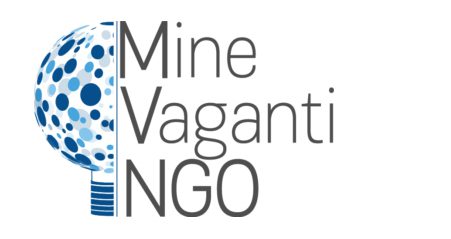The EU Youth Strategy seeks to encourage young people to participate in democratic processes and in society. The methods include to develop mechanisms for engaging in dialogue with young people and facilitating their participation in the shaping of national policies and supporting ways of ‘learning to participate’ from an early age.
‘Learning to participate’ includes skills, such as digital literacy, entrepreneurship, project planning and management, social awareness and interaction, allowing young learners to increase their employability.
The proposed project will therefore address the aims of the Paris ‘declaration on promoting citizenship and the common values of freedom, tolerance and non-discrimination through education of 2015, in which the European education minister announced to support political education in order to fight radicalization. Identifying smart practices in training participation and citizenship will help to achieve social, democratic and intercultural skills for learners but as well facilitators. It will increase critical thinking and foster media competences.
All over Europe, citizen participation is often hindered by a lack of information, communication and cooperation between affected stakeholders as well as limited access to knowledge of the options available for voicing local interests. Citizens and stakeholders therefore require an overview of existing training tools and methods that can help overcome those barriers to participation.
However, in the past years a waste number of tools and methods had been developed in the different educational sectors and national systems. We believe that instead of reinventing methods, it will be more productive to evaluate existing tools in all sectors, identify good practices, collect and review them and share them in a specific format. Therefore the project consortium consists out of partner from different education sectors, covering the geographic scope of all of Europe. The project coordinator is Comparative Research Network e.V.And the partners of the Project are Suomen ympäristöopisto SYKLI oy (Finland), Federação das Associações Juvenis do Distrito do Porto (Portugal), Mine Vaganti NGO (Italy), Yildirim Beyazit Universitesi (Turkey), Stowarzyszenie Pastwisko.org (Poland), European Geography Association for Students & Young Geographers (Netherlands).
Concrete situations where the results of the project will have impact are:
– Vocational education for people working on the empowerment of citizens especially those with vulnerable rights (ethnical minorities, people suffering from structural poverty, disabled people etc.): social workers, local development agents, civil association members, teachers, and any other professionals
– In adult education where innovative methods are required in order to empower citizens participation in local level programs
– In other teaching situations, such as higher education, primary and secondary school education and youth programs
This capacity building on teachers and trainers will further have an impact on all learners, improving their personal skills and in this way increasing their employability.
Earlier projects by the different partners on good practices proofed that a Trans-national analysis produce results which are highly relevant and transferable, complementary and the fast applicable in other countries. For this reason plus the fact that we are seeking European answers for participation, the project has to be Trans-national.
The project seeks to create an evaluation grid for identifying best practice in citizenship building and collect those practices in a method handbook. This handbook can be understood as a tool-box for trainers, teachers and other facilitators in order to create innovative and tested instructions all over Europe and across all educational sectors. The project will run for two years and will consists out of a number of multinational meetings (each partner will organize one) where good practice methods are presented and discussed.
The grid and the method handbook will be open access and should be used by institutions from all education sectors in formal and non-formal learning. The project can be understood as a pre-assessment of the needs to create and test European curricula in citizenship building. The project target directly trainer and teacher in all educational sectors.
Through sharing good practices of participation and citizenship we seek impact on all administrative, organisational and educative levels. We expect the participants of the project to extend their knowledge on training participation and citizenship and how this is done in Europe.








